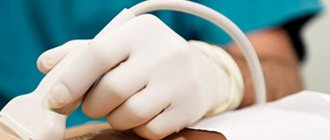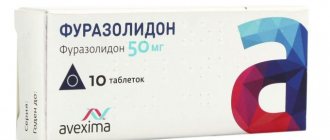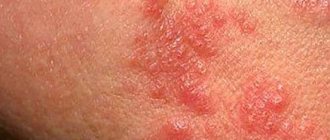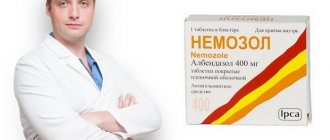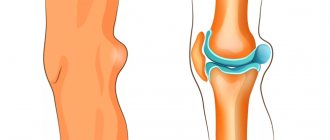- How does dehydration occur?
- Causes of dehydration
- Additional factors
- What happens when you become dehydrated?
- Types of dehydration
- Symptoms
- Diagnostics
- Treatment of dehydration
- Prevention
- Preparing a rehydration solution at home
Dehydration is a condition of increased loss of water from the body. Otherwise, this condition is called dehydration or exicosis. It is characterized by thirst, dry skin, and decreased urine output. As the moisture deficit increases, the patient's blood pressure decreases, the skin becomes pale, disturbances of consciousness are observed, and pathological changes in the composition of the blood - an increase in hematocrit. This is the name for the increase in the volume of red blood cells to the volume of the liquid part of the blood. In the absence of treatment, which is aimed at normalizing water and electrolyte balance, dehydration leads to death.
The best medicines for dehydration.
September 15, 2022
12041
4.8
1
Content
- Causes of dehydration
- Does a person need 2 liters of water per day?
- Symptoms of dehydration
- Complications from dehydration
- How to treat dehydration
- Anti-dehydration medications: top 5 best
- Regidron
- Oralit
- Adiarine Regidro
- Gastrolit
- Humana Electrolyte
In infectious diseases (especially intestinal infections), dehydration (exicosis) often develops. Those at risk are primarily children and the elderly. Middle-aged people have more developed compensatory mechanisms that allow them to retain fluid in the body.
You might think that the best remedy for dehydration is water. But, unfortunately, not everything is so simple. When moisture leaves the body, important electrolytes and mineral salts are lost along with it. If you simply drink a lot of water, the ionic composition will still not be replenished, so plain water is not a panacea at all. When dehydrated, the concentration of magnesium, potassium, sodium and bicarbonate is disrupted - the electrolyte balance of the body suffers greatly.
Read also: Top 5 best sorbents for poisoning Rating of the most effective and safe sorbents that help with poisoning and hangover syndrome.
General information
Dehydration (dehydration, exicosis, hypohydration) is a condition that develops when the loss of water exceeds its intake. metabolic disorder occurs in the body . Dehydration is characterized by dry skin, thirst, and decreased diuresis . In severe cases, serious symptoms may develop: hypotension , loss of consciousness, cyanosis .
Dehydration in medicine is a condition that develops with a lack of water of 40-50 ml/kg, and a person’s weight decreases by 4-5%. At the same time, the more the water balance is disturbed, the more intensely the general condition deteriorates. When a person loses up to 25% of the total fluid volume, death occurs. But already with a loss of 1% of the total amount of fluid, painful changes are noted.
The causes of this condition may be due to a number of conditions that are associated with significant fluid loss, insufficient nutrition and fluid intake, as well as working in hot conditions. In young children, dehydration most often develops against the background of gastrointestinal diseases accompanied by diarrhea .
In what situations dehydration develops, and how to effectively replenish fluid loss, will be discussed in this article.
Causes of dehydration
Fluid intake rates are calculated for healthy adults under standard living conditions. They usually write that this is 35 ml per 1 kg of weight. That is, if a person weighs 70 kg, then he should drink 2.4 liters of water per day to prevent dehydration. Below we will look at how justified this recommendation is. But it happens that at one time or another more liquid is needed. First of all, for those who sweat a lot. And it doesn’t matter what caused it: physical activity, hot weather or hormonal imbalance. Who needs more water than the standard recommendation:
- athletes;
- pregnant and lactating women;
- in case of poisoning or intestinal infection (when there is vomiting and diarrhea);
- after sun or heatstroke;
- if for some reason a person has frequent urination.
When you are on a diet, then you also need to drink more. In addition to the fact that a person does not receive all the necessary nutrients, due to a lack of fluid, his metabolism may be disrupted.
Some diseases also often cause dehydration. First of all, acute intestinal infections, usually accompanied by diarrhea and vomiting. In this case, not only fluid is lost, but also important alkaline ions - acidification of the body develops (acidosis). This process develops especially quickly in children and causes malfunction of internal organs. Dehydration is also caused by forms of gastroenteritis such as salmonellosis and cholera.
When vomiting, the body loses acids and the blood becomes more alkaline, which is dangerous to health.
Another cause of severe dehydration is body burns. This is especially dangerous for young children: even with a first-degree burn (hyperemia of a body area), the body loses a lot of moisture. If it is a more severe burn (with blisters), significant loss of blood plasma occurs. Without treatment, such dehydration can be fatal (especially in older people).
If a person takes diuretics uncontrollably, he is also at risk of dehydration. Drugs with a diuretic effect are usually prescribed to patients with hypertension, but it happens that women, in pursuit of slimness, drink various diuretic teas and tablets. If you do this constantly, electrolytes leave the body along with the fluid, which can lead to heart problems.
Read also: The most effective antipyretics for adults 8 most effective drugs for high temperatures.
Classification
Depending on the degree of dehydration, hypohydration is divided into the following types:
- Mild degree – reduction in body weight by no more than 5%. In this state, a person feels thirsty and may experience slight mental anxiety. The pulse is normal or slightly increased, the mucous membranes are moist.
- Average degree – weight loss by 6-9%. The mucous membranes are dry and sticky, the eyes are sunken. Tachycardia is noted , while the pulse voltage decreases. Psycho-emotional disorders are also more pronounced. There may be restlessness or lethargy. Blood pressure decreases or increases by about 20%.
- Severe – weight loss of 10% or more. Mental retardation is noted. The eyes become very sunken, the skin turns blue, and the temperature of the skin drops. Blood pressure drops significantly, pulse quickens. Breathing is deep and frequent. The person may lose consciousness. Coma and death are possible.
According to the concentration of blood electrolytes, the following types of exicosis are distinguished:
- Hypertensive dehydration – against the background of dehydration, a lack of water prevails. Develops when a person loses electrolyte-free water, or when water loss is greater than electrolyte loss.
- Hypotonic dehydration – against the background of dehydration, a lack of electrolytes predominates. As a result, the osmolarity of the extracellular fluid decreases.
- Iso-osmolar dehydration – there is a proportional loss of water and minerals.
Does a person need 2 liters of water per day?
Disputes among doctors and nutritionists about the amount of fluid per day continue. This topic has become overgrown with a bunch of myths, following which people harm their own health. Experts from the World Health Organization believe that there is no identical daily fluid requirement for all people. And don’t believe that you need to drink 2 liters of water (not counting tea, coffee and liquid from food). The main factors here are the person’s age and weight. So, how much should you drink per day per 1 kg of weight:
- Children up to 10 kg – 4 ml of water per hour.
- Children up to 20 kg – 1000-1500 ml per day.
- Teenagers and adults over 20 kg - 1500 ml for the first 20 kg plus for each subsequent kilogram of weight - 20 ml.
Let's do the math. If a person weighs 50 kg, he needs 1500 ml of fluid plus 20 ml multiplied by 30 subsequent kilograms. Yields 2100 ml per day. If you feel thirsty, be sure to drink! But if you don’t want water, you don’t need to force yourself: the body itself signals when it needs water, so forget about the numbers.
Read also The most effective probiotics for the intestines: top 5 How to choose a probiotic and for what problems it is prescribed.
Diet
Water diet
- Efficiency: 3-4 kg in 1 week
- Terms: from 3 days to 4 weeks
- Cost of products: 100-200 rubles per day
During the period of dehydration, in addition to drinks to replenish fluid, it is recommended to introduce the following products into the diet:
- Potassium-containing foods - raisins, tomatoes, herbs, potatoes, bananas, oranges.
- Vegetable broths.
- Fruits – melon, grapefruit, watermelon, grapes, strawberries.
- Vegetables – zucchini, spinach, cucumbers.
It is recommended that children be given cereal-based porridges, steamed cutlets, broths, stewed or boiled vegetables, and dried vegetables.
During the period of dehydration, it is not recommended to drink tea, coffee, sweet soda, or alcohol.
Symptoms of dehydration
Thirst is not the main sign of dehydration, as we used to think. Long before pathology occurs, the body sends signals about a lack of fluid.
DEHYDRATION TEST.
Pinch the skin on the back of your hand with your fingers. If the fold is quickly leveled, there is enough water in the body; if it is slow, you need to drink.
Under normal conditions, the kidneys process about 100 ml of fluid per hour, so it is usually difficult to bring the body to dehydration unless there are aggravating factors. The main signs of pathological dehydration are:
- weight loss over 3%;
- pale skin;
- low temperature;
- sunken eyes;
- rapid pulse;
- rare or absent urination;
- dry mouth (no saliva);
- swollen tongue;
- difficulty swallowing;
- cold sweat.
With such symptoms, the blood becomes thicker and the acid-base balance is disturbed. You need to understand that dehydration is not an independent diagnosis, but a consequence of a certain disease.
If a patient has kidney or heart failure, not only dehydration itself is dangerous for him, but also a sharp replenishment of fluid in the blood. In such cases, central venous pressure and pulmonary artery pressure are measured invasively.
Determining dehydration by electrolytes in urine is not always reliable. If the patient has healthy kidneys, sodium is retained in his body for a long time, which does not enter the urine in large quantities.
Dehydration test
Photos from open sources
What should you be wary of?
Sometimes the signs of dehydration are not so obvious, so the following conditions should be on your guard:
- prolonged diarrhea, vomiting and nausea for more than 12 hours;
- epileptic seizure, loss of consciousness;
- impaired breathing;
- stomach ache;
- absence of urination and the urge to urinate for half a day;
- heat.
Such pathological conditions with dehydration require immediate medical attention.
Complications from dehydration
Dehydration is dangerous primarily for children and the elderly. A child’s body contains more fluid than an adult’s, so if a child loses even 10% of water, serious problems in the functioning of internal organs are possible.
It doesn’t matter what the cause of dehydration is, the result is the same: the body loses important ions that maintain the acid-base balance and are responsible for the proper contraction of the heart muscle. Renal blood flow also decreases as fluid decreases. The kidneys respond by releasing the hormone vasopressin, which provokes vasospasm throughout the body and increases blood pressure.
During dehydration, blood flow to vital organs increases, but other organs do not receive enough of it - there is a danger of disruption to their functioning. Blood pressure decreases, the pumping function of the heart and blood supply to its muscles decrease. This further reduces blood pressure, and there is a risk of ischemia of the brain, kidneys and lungs. This is called hypovolemic shock, the symptoms of which are:
- pale skin;
- general weakness;
- muffled and slow heartbeat;
- mental disorders (sometimes increased agitation);
- foggy consciousness;
- coma.
If treatment is not started immediately against the background of hypovolemic shock, DIC syndrome (disseminated intravascular coagulation) occurs and, as a result, death.
Symptoms
Each degree of dehydration has its own characteristics:
- Mild degree. The patient feels thirsty, the pulse remains normal, but may increase. The skin and mucous membranes are unchanged. The nervous system may show signs of restlessness and anxiety.
- Average degree. Externally, the pathology is manifested by dry skin and mucous membranes, decreased diuresis. The eyes become sunken, the patient’s pulse quickens, and the blood pressure is increased or decreased by about 20% of normal levels. On the part of the central nervous system, both anxiety and inhibition can be observed.
- Severe degree. Severe fluid deficiency causes neurological disorders. The patient is very inhibited and practically does not react to anything. Breathing becomes difficult, blood pressure decreases greatly, and tachycardia is characteristic. The skin looks pale and has a bluish tint, and it feels cold to the touch.
With moderate to severe degrees of dehydration, the risk of complications increases. First of all, they are associated with the formation of blood clots due to the high viscosity of the blood. If a blood clot blocks a blood vessel in a vital organ, the patient may die or suffer irreversible negative changes. Some people who survive severe dehydration experience chronic headaches, weakness, and decreased muscle movement. Children have cognitive impairment.
How to treat dehydration
The sooner the balance of fluids and electrolytes in the body is restored, the better. It’s just that pure water is absolutely not suitable for these purposes - when there are few blood ions in the body, water will not be absorbed.
If dehydration is mild and the person is not vomiting, oral rehydration is appropriate. Doctors prescribe water-salt solutions. You can prepare them yourself by dissolving the contents of the sachet in water. The required volume of solution is determined by how severe the patient’s condition is. For diarrhea, for example, you need to drink 100 ml every 5 minutes.
If it is heatstroke, there are convulsions and large volumes of fluid come out in the urine, you need to drink 900 ml of rehydration solution in small portions within half an hour. Next is taking the drug for maintenance therapy.
Severe cases of dehydration, causing disruption of internal organs, require urgent hospitalization - intravenous administration of drugs to replenish fluid and balance electrolytes. Usually sodium chloride, Ringer's solutions, glucose or potassium are "dripped".
With burns, in addition to water, the body usually loses protein. Therefore, in addition to restoring fluid balance, it is necessary to introduce solutions of albumin, dextrans, and hydroxyethyl starch.
Dehydration, as we've already discussed, is especially dangerous for children, older adults, and those with certain chronic health conditions. Therefore, it is important to replace fluids during vomiting and diarrhea and treat the cause of fluid loss. Diabetics should periodically monitor their glucose levels, follow a consistent diet and drink enough water.
Symptoms of dehydration
Photos from open sources
Prevention measures
To avoid encountering a similar problem, it is recommended:
- do not miss regular visits to the clinic;
- if problems arise or the baby’s condition changes, seek emergency help;
- monitor the child, control the situation by assessing the baby’s behavior and needs;
- give the baby fluids, avoid long walks in the hot season, limit exposure to the sun;
- maintain a comfortable temperature in the room;
- Feed your baby regularly and in sufficient quantities.
To prevent your baby from showing symptoms of dehydration, you need to take proper care of it. Give your child enough time, pay attention to the slightest changes in his condition. This will help to provide timely help to the baby if any problems arise.
Regidron
Probably the most commonly prescribed drug for dehydration. The powder contains: sodium chloride, potassium chloride, sodium citrate and dextrose (D-glucose). The ideal balance of sodium and glucose is maintained here, so Regidron is considered the best remedy for absorbing water and reducing the load on the intestines. The drug also contains sodium citrate (citric acid salt), which improves energy metabolism. "Regidron" not only restores the water-electrolyte balance, but also the acid-base balance. The product is indicated for diarrhea, moderate vomiting, and severe sweating. It’s easy to prepare the solution – you just need to dissolve a bag of powder in 1 liter of cool boiled water.
Regidron
Orion Pharma (Orion Pharma), Finland
- oral rehydration and prevention of dehydration in acute diarrhea accompanied by mild to moderate dehydration.
from 18
650
- Like
- Write a review
Oralit
This anti-dehydration drug is not as balanced as the previous one, but it also works great to restore fluid balance. Ingredients of Oralit: table salt, sodium bicarbonate, potassium chloride, glucose. The product contains the most necessary components to relieve first or second degree dehydration. Oralit is suitable for children who do not want to drink on their own - in small portions (10-15 ml) every 15 minutes. It can be taken from a spoon or through a syringe without a needle. A child needs about 1 glass of solution per kilogram of weight per day, and the dosage cannot be increased. If a newborn is dehydrated, the solution prepared according to the instructions must be diluted twice more with water, because the preparation contains too much sodium for the baby.
Oralit
Oralit is a rehydrating agent for normalizing electrolyte and energy balance. Method of administration: oral. Reduces or prevents dehydration. Effectively restores lost potassium, sodium and water. Used to restore fluids and lost electrolytes during diarrhea. Normalizes acid-base and water-electrolyte balances disturbed by dehydration. Metabolic acidosis is maintained by glucose through the absorption of citrates and salts.
238
- Like
- Write a review
Adiarine Regidro
The drug contains glucose, sodium citrate, sodium chloride, potassium chloride, silicon dioxide, zinc amino acid chelate. A good drug for preventing dehydration and restoring electrolyte levels during diarrhea. It is the zinc in Adiarina Regidro that helps to quickly stop diarrhea. The product is ideal for acute gastroenteritis in children, reducing mortality due to dehydration due to diarrhea by 93%. Also, Adiarin Regidro protects the intestinal mucosa from the penetration of toxins and bacteria into the blood. The contents of the sachet should be dissolved in a glass of boiled water at room temperature. You need to take the anti-dehydration medication until the diarrhea stops.
Adiarine Regidro
Jadran-Galenski Laboratories, Croatia
Adiarine Regidro is a drug for the prevention of dehydration and rapid replenishment of water and electrolyte losses due to diarrhea.
Thanks to its zinc (Zn) content, Adiarin Rehydro reduces the duration of diarrhea. from 281
204
- Like
- Write a review
Treatment tactics
Diet and even fasting as a treatment for diarrhea
The choice of treatment depends on the causes of the disease:
- Diet is a prerequisite for recovery
- Detoxification measures - if the cause of diarrhea is due to the effects of medications or toxic drugs
- Antibiotics – if the disease is caused by bacteria
- Rehydration - replenishing fluid loss
- Drugs to restore normal intestinal motility
If, during examination, tumor neoplasms are revealed, the patient is referred to a doctor of an advising profile - an endocrinologist, oncologist-gastroenterologist. In this case, without treating the underlying disease, secretory diarrhea cannot be stopped. All medications are prescribed by the attending physician and selected individually.
The length of use of antibacterial agents depends on the severity of the disease and can last up to 2 months.
Gastrolit
"Gastrolit" contains sodium chloride, potassium chloride, sodium bicarbonate, glucose. In addition, the composition contains chamomile, which has an antimicrobial effect and “calms” the gastrointestinal mucosa during intestinal infections. To prepare a rehydration solution, you need to dissolve a packet of Gastrolite in a glass of hot water and wait until it cools down - you get a medicinal drink with an optimal set of electrolytes.
Gastrolit
TEVA, Ukraine
The drug replenishes water and electrolyte losses resulting from acute diarrhea and relieves metabolic acidosis. Chamomile extract additionally has an anti-inflammatory, antiseptic and antispasmodic effect on the intestines.
228
- Like
- Write a review
Secretory diarrhea in more detail
The mechanism of development of this type of gastrointestinal disorder is as follows:
- Increased movement of electrolytes into the intestinal lumen
- Electrolytes pull water with them, and watery diarrhea begins
Reasons for the development of pathology:
- Infection – foodborne illnesses, cholera, staphylococcus, some strains of E. coli, bacteria of the species Yersinia enterocolitica
- Damage from toxic substances - arsenic, phosphorus compounds, insecticides
- Genetic diseases - folic acid malabsorption
- Some cancers - pancreatic tumors, gastrinoma, medullary thyroid cancer
- Taking certain laxatives - castor oil, buckthorn bark, rhubarb
With this type of diarrhea, all pathological processes are concentrated in the small intestine.
Humana Electrolyte
Children do not refuse to drink this banana-flavored drug, which is very important. “Humana Electrolyte” with banana is prescribed for children from three years of age; for newborn babies there is “Humana Electrolyte” with fennel. The product is excellent for treating dehydration for almost any reason: vomiting, diarrhea, increased sweating, intestinal infection, hormonal imbalance, etc. Humana Electrolyte instantly restores the imbalance of electrolytes, replenishes fluid and minerals. One sachet of the drug should be diluted in a glass of water (250 ml). It is advisable to take warm boiled water or tea.


